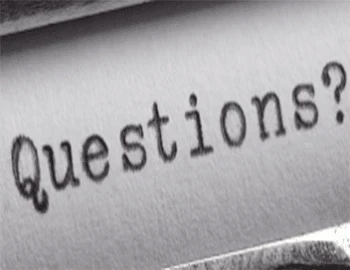
How To Answer Interview Questions
What’s Your Greatest Strength / Weakness? Can You Answer This Question Effectively..
“What’s Your Greatest Strength / Weakness?” Learn How To Answer This Question..
Let’s face it. Searching for a new job is tough. Preparing for the interview is tougher. Here are some tips on how to answer the question, “What’s your greatest strength / weakness?”. It may be simpler than you think.
“What’s your greatest strength?”
This may be one of the easier questions you’ll be asked during an interview and gives you the opportunity to showcase some of your career accomplishments.
A great way to respond to this question is to highlight one or two of your attributes that directly relates to the position you are applying for and/or project work you have done in the past. Do you work well under pressure? Do you manage people well? Maybe you’re a great communicator, an amazing problem solver or have an extraordinary gift for keeping projects on time and under budget.
When answering this question you should utilize examples from your past, projects you completed, tasked you accomplished. A few examples include, “When I was working on the Transamerica project, I kept the lines of communication open regarding the project’s progress with my superiors, as well as, the onsite trades;” or “I strived to ensure all safety rules and regulations were being observed and the governmental regulators saw our dedication to safety on this project..” Stressing your strengths by providing examples in practical real life applications will allow the interviewer to see your skills in practical terms.
“What is your greatest weakness?”
When asked the question “what you greatest weakness..”, there are three approaches you can take to answer this question effectively: mention skills that are not critical to the job you are interviewing for, explain skills you have improved upon and/or describe how you turned a negative situation into a positive one utilizing existing skills and your abilities to grow as a professional.
By analyzing the key skills and strengths of the position, you can discuss one of your honest shortcomings that is not essential to success in the job. Maybe you’re a workaholic or find it difficult to sit idle for long periods of time; weaknesses that could appear as self-motivation and determination to a prospective employer could provide you the edge you are seeking in obtaining the position.
Another approach is to address a weakness you have improved upon in your current / previous position. By outlining the steps you took to advance the skill from its basic function to your current level of efficiency will show an interviewer that you have the ability to adapt and grow as a professional.
If you struggle with self-organization, the interviewer will be interested in hearing how you make full use of your smartphone planning app or are able to multitask if necessary. However, it’s important that you do not select a weakness that’s a key requirement for the position, so as to not cast doubt on your qualifications for the job.
A third option is to describe how you turned a negative into a positive. For instance, your tendency to expect too much of your co-workers is mitigated by holding regular, informal meetings to discuss progress of the project and where expectations are clarified to everyone in the organization Utilize real time examples on how your weakness allowed you to grow as a professional and achieve success, by recognizing your shortcoming and working to overcome them effectively.
The key to successfully answering tough questions such as these is to stay positive and focus on the attributes and qualifications you can bring to the organization that will lead to successful growth or your own career, as well as, the organization you are interviewing with. .
Michael DeSafey is a leading executive recruiter for professionals in the construction, engineering and environmental industries. He is currently the President of Webuild Staffing (www.webuildstaffing.com ). To learn more about Michael or to follow his Blog please visit www.michaeldesafey.com
